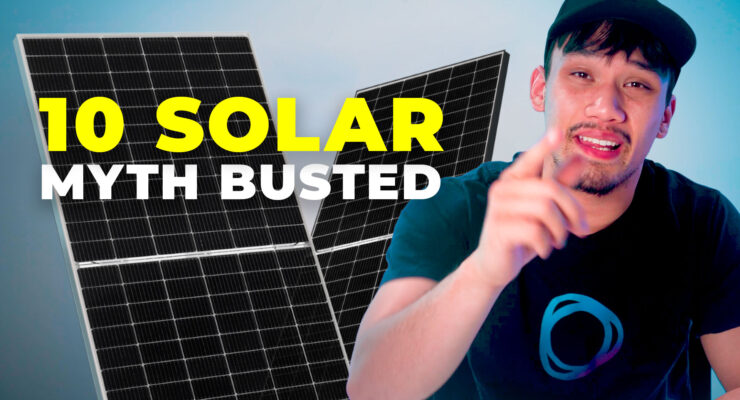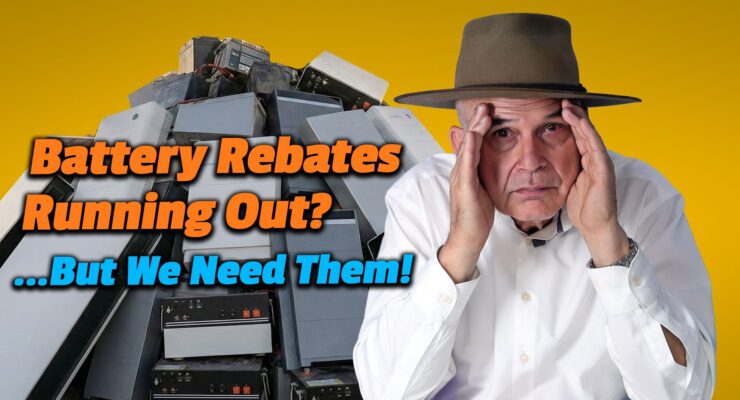Fast read
Finding a qualified and trustworthy battery installer is crucial for the safety and performance of your system. In Australia, you must use an individual accredited by Solar Accreditation Australia (SAA) to be eligible for government rebates like the Small-scale Renewable Energy Scheme (SRES). You should verify their accreditation number on the SAA website and consider choosing a company that is a New Energy Tech Consumer Code (NETCC) Approved Seller for higher standards of consumer protection.
How do I find an industry-accredited and approved battery installer?
Choosing to install a home battery is a significant step towards managing your energy future. However, the success of your investment hinges on the quality and safety of the installation. In Australia, the solar and battery industry is regulated to protect consumers, ensuring that installers have the right skills and adhere to strict standards. This guide will walk you through how to find a properly accredited and reliable battery installer.
Why accreditation is non-negotiable
When you invest in a battery storage system, you’re not just buying a product; you’re installing a complex electrical system in your home. Using a properly accredited professional is essential for several key reasons:
- Safety: Battery systems, particularly lithium-ion types, store a large amount of energy. Incorrect installation can pose serious risks, including electrical hazards and fire. Accredited installers are trained to comply with the critical Australian Standard AS/NZS 5139, which governs the safe installation of battery systems.
- Performance and Reliability: A correctly installed system will operate efficiently and effectively. An accredited professional will ensure all components are configured correctly according to manufacturer specifications and industry best practices.
- Eligibility for Government Rebates: To access federal government incentives like the Small-scale Renewable Energy Scheme (SRES) and the upcoming Cheaper Home Batteries Program (starting July 2025), your system must be installed by an installer accredited by Solar Accreditation Australia (SAA).
- Warranty Validity: Many manufacturer warranties are void if the system is not installed by an accredited professional.
Understanding the key industry bodies
Navigating the industry jargon can be confusing. Here are the main organisations you need to know:
- Solar Accreditation Australia (SAA): As of early 2024, SAA is the national body responsible for accrediting solar and battery installers and designers. This role was previously held by the Clean Energy Council (CEC). An SAA accreditation for battery systems certifies that the individual tradesperson has undertaken specific training and is competent to install battery storage systems safely.
- Clean Energy Council (CEC): While no longer handling installer accreditation, the CEC remains a vital industry body. They advocate for the renewable energy sector and, importantly for consumers, they manage the list of approved products (solar panels, inverters, and batteries) that are eligible for government rebates.
- New Energy Tech Consumer Code (NETCC): This is a voluntary code of conduct for solar and battery retailers. A retailer who is an “Approved Seller” under the NETCC has committed to higher standards of service, sales, and consumer protection. Choosing a NETCC Approved Seller provides an extra layer of confidence that you’re dealing with a reputable business.
It’s important to note the distinction: individuals are accredited by SAA, while products are approved by the CEC, and retail companies can become Approved Sellers under the NETCC program.
A step-by-step guide to finding your installer
Finding the right installer involves a few straightforward steps of verification and due diligence.
- Step 1: Search for local installers and retailers: Start by searching for solar and battery specialists in your local area. Local companies often rely on their community reputation and may offer more accessible follow-up services. You can use online searches, but also ask for recommendations from neighbours or friends who have had positive experiences.
- Step 2: Verify their accreditation: Once you have a shortlist of potential companies, the next critical step is to verify their credentials. Ask for the full name and SAA accreditation number of the individual who will be designing and installing your system. You can then verify this information directly on the SAA website. An installer can hold different types of accreditation, so ensure they have the specific “Grid Connected Battery Systems (GCBS)” accreditation.
- Step 3: Check for NETCC approval: While not mandatory, it is highly recommended to choose a retail company that is a NETCC-approved seller. This demonstrates a commitment to ethical business practices and provides you with a clear process for resolving any disputes. You can find a list of Approved Sellers on the NETCC website.
- Step 4: Get multiple quotes: Always obtain at least three comprehensive quotes. This allows you to compare not just the price, but the recommended system size, the brands of components offered, and the warranties provided. A detailed quote should break down all costs clearly.
Key questions to ask a potential installer
A professional and experienced installer will be happy to answer your questions thoroughly. Use these questions to gauge their expertise and suitability for your project:
- Accreditation and Licensing: “Can you provide your SAA accreditation number for battery installations? Will you, the accredited installer, be on-site to supervise the installation?”
- Experience: “How long has your company been in business, and how many battery systems have you installed?”
- System Design: “Why have you recommended this specific battery brand and size for my home? How does it match my energy consumption patterns?” As an example, they might recommend a Sungrow hybrid inverter and battery system for its integrated design or an Aiko panel for its high efficiency to maximise charging potential.
- Installation specifics: “Where do you propose installing the battery, and how will it comply with the safety clearance requirements of AS/NZS 5139?”
- Warranties and Support: “What are the warranties on the battery, the inverter, and the installation workmanship? Who do I contact if there’s a problem, and what is your process for service calls?”
- Paperwork and Grid Connection: “Do you handle the application to connect to the grid with my local network provider and the paperwork for the government rebates?”
Red flags to watch out for
Be cautious of high-pressure sales tactics, such as “limited time offers” or doorknockers. Unusually cheap deals can often indicate the use of lower-quality components or non-accredited installers. A reputable company will provide a detailed, transparent quote and give you time to make an informed decision.
By following these steps and asking the right questions, you can move forward with confidence, knowing you have chosen a qualified, accredited, and trustworthy professional to install your home battery system. This ensures your investment is safe, compliant, and ready to serve your energy needs for years to come.





